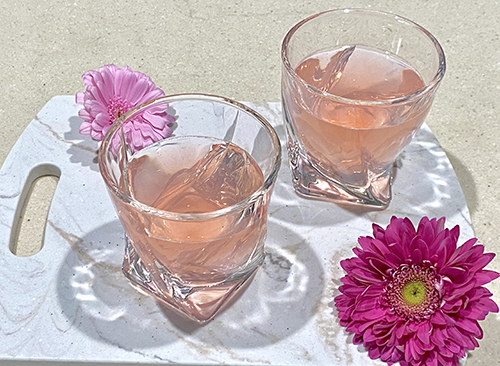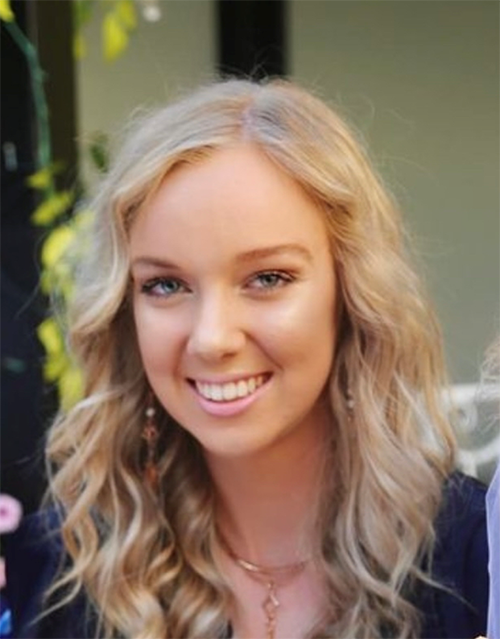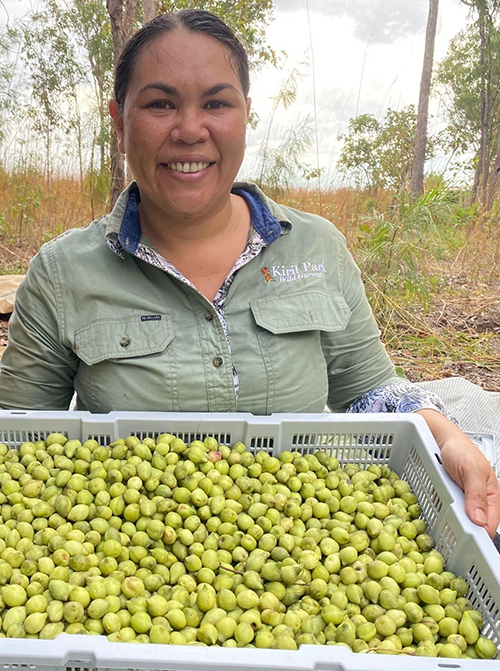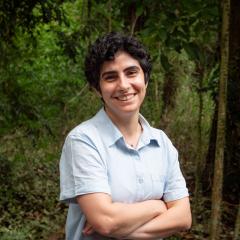Reducing the consumption of sugary drinks in remote Indigenous communities and creating business opportunities are the twin aims of University of Queensland PhD candidate Jessica Cartwright’s research.
As part of the team led by Dr Olivia Wright at the Australian Research Council Training Centre for Uniquely Australian Foods, Ms Cartwright is working to develop a soft drink using native ingredients and less sugar.

“In Indigenous communities there are higher rates of sugar-sweetened beverages consumed than compared to the rest of the country,” Ms Cartwright said.
“We know this leads to negative health outcomes - chronic diseases like type two diabetes, obesity, and cardiovascular disease, all the nasty stuff.
“But what we haven’t figured out is why Indigenous people are so drawn to these sugary drinks.”
She said a few interventions to reduce sugar-sweetened beverage consumption in these communities have been tried and tested without addressing the root cause.
“These programs are often ineffective or not sustainable long term, so we’re coming up with an alternative approach.
“We are creating a healthier drink using native ingredients to empower communities and connect them to Country.
“Our drink has a base of Kakadu plum, and our current prototype also has a little bit of Davidson plum, but the goal is when we start to work closely with specific communities if they grow Finger lime for example, we will try to include that.

“We really want them to be able to take ownership of the drink to create an Indigenous enterprise.
"There is also the route of commercialisation down the track, but all the profits would be going to the Indigenous communities.”
Michelle On from Kiril Park Wild Harvest said as an Indigenous person, she has seen firsthand the impact of chronic disease and is happy to be involved with a project aiming to address the issue.
“It’s really sad to see chronic diseases affecting Indigenous people when traditional foods have so many nutritional benefits,” Ms On said.
“I hope awareness will lead to healthier eating habits and this Kakadu plum beverage is the perfect alternative to high sugar soft drinks.
“Encouraging people to change eating habits and include more bushfoods is putting cultural foods back in a staple diet, and will not only have nutritional benefits but will boost cultural knowledge of bushfoods.”

The prototype will be taste tested at the TropAg International Agriculture conference in Brisbane from October 31 to November 2.
“It’s a small sensory trial to gauge if people actually like the drink,” Ms Cartwright said.
“We have found preference or taste is the most common factor that influences sugar-sweetened beverage intake, which is why it is imperative that its acceptance is comparable to that of a regular soft drink.”
She said not only would the drink contain less sugar, but its native ingredients would ensure it was also nutritious.
“We’ve done preliminary testing and found that, because of the Kakadu plum, the drink has a lot of vitamin C,” Ms Cartwright said.
“This is beneficial, given our consumer is remote Indigenous communities where access to fresh fruit and vegetables and the nutrients they provide can sometimes be limited, and expensive.
“Overall, I think this idea of trying to create a substitute to decrease full sugar soft drink consumption had not even been considered up until this point.
“It has been an honour co-designing this beverage with the training centre’s Indigenous partners.
“It is a great project with lots of potential.”
This research project is funded by the Cooperative Research Centre for Developing Northern Australia (CRCNA), The University of Queensland, the Queensland Department of Agriculture and Fisheries, the Australian Research Council, Kindred Spirits Foundation, and project partners BeeInventive Pty Ltd, Australian Native Food Industry Limited, Karen Sheldon Catering Pty Ltd, Venus Shell Systems Pty Ltd, Accuratus Pty Ltd, and Australia Lemon Myrtle Products Pty Ltd t/a Australian Native Products.
Media: Jessica Cartwright, j.cartwright@uq.net.au, +61 (0)452 277 868; QAAFI Communications, Natalie MacGregor, n.macgregor@uq.edu.au, +61 (0)409 135 651.
Images are available via Dropbox.



